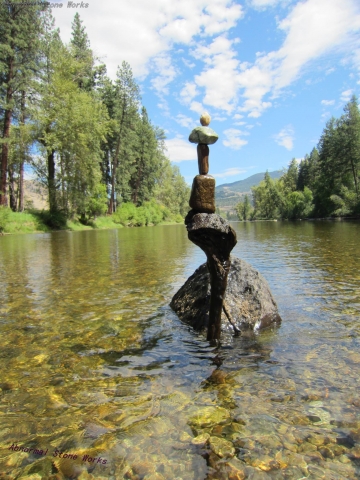KETTLE RIVER Q&A: What’s next for the Kettle River Watershed?
In the last column I reviewed a few of the main activities and initiatives of 2015 for the Kettle River Watershed Management Plan. Today I want to look ahead to 2016, sharing a few of the priorities in the Plan that our Steering Committee and Advisory Group are committed to achieving.
On November 19 we held a second meeting with a large group representing water suppliers from across the Boundary. There were farmers, municipal councillors, small water utility operators and technical staff, there to talk about how we can better respond to drought.
Two main points emerged. First, the group identified that more information sharing and education was needed for water users and ratepayers in how (and why) to reduce water use in different settings. That could include everything from bulletins and columns to hands-on demonstration and door-to-door contact to support compliance with water regulations. This relates to several actions in Strategy 1 in the Plan.
Second, the group recommended developing a common approach and terminology in a water conservation and drought response strategy (Action 2.3.1 and 2.4.1). The BC Drought Response Plan clearly articulates a role for local partnerships in responding to drought, providing a good starting point for our discussions. Though as some group members pointed out, our strategy needs to be proactive, not reactive, by instilling widespread water conservation practices that help reduce the impacts of drought before we even get to water restrictions.
We will be discussing these points with water suppliers over the coming months in order to develop a sound and well-supported strategy that could be adopted as policy across the region.
Another major initiative for 2016 is building an online map-based interface so the public and decision-makers can learn more about their water supplies, discover reports and monitoring information, and connect the dots between different issues (Action 1.2.1). Relevant information is currently housed in dozens of different websites and databases, making it difficult to put together a current and coherent picture of issues such as drought, land use impacts or ecosystem stresses.
Throughout the planning process, many people have shared their concerns about protecting the headwaters – our ‘water towers’ in the mountains and plateaus – from the impacts of different land uses and activities. While some point the finger at one group or another, the problems are really cumulative and interconnected, so we need to look deeply at the issues (as in the Granby Wilderness Society’s Riparian Threat Assessment) then work together on meaningful solutions (Direction 3.1 and 3.2).
To that end, we are planning to work with the Okanagan Nation Alliance Natural Resource Committee to co-host a community forum this winter on protecting the headwaters (Action 1.1.5). We are really excited about learning more about our common interests in the headwaters and about First Nations knowledge and perspectives about land and water. Stay tuned for more details.
We will be continuing to work with the Boundary Habitat Stewards and other partners to restore habitat around streams, lakes and wetlands, and connecting with planning initiatives by local governments, forestry and agriculture to improve watershed health and function.
Of course, there are other priority actions that various stakeholders wish to support or lead as we move forward – I look forward to hearing from you about your priorities and commitments. As the Plan indicated, many different organizations share responsibility among their various jurisdictions for protecting and managing water, and we need to work together to ensure policies and practices are connected, consistently and effectively, by the one common thread of healthy, functioning waterways and ecosystems.
Graham Watt is the coordinator of the Kettle River Watershed Management Plan for the Regional District of Kootenay Boundary. Contact Graham at plan@kettleriver.ca or 250.442.4111.
























